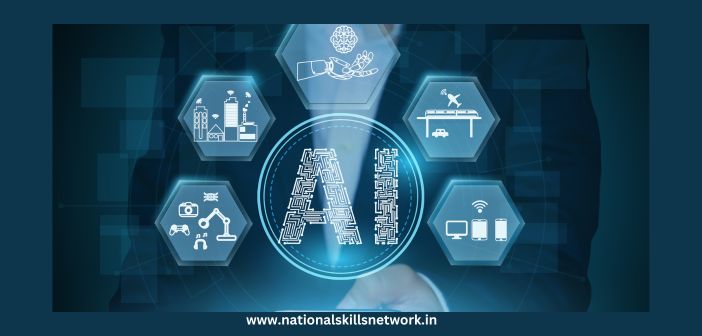
“To integrate Artificial Intelligence (AI) in the logistics industry and other sectors, it is crucial to broaden the educational landscape surrounding AI. This includes developing a comprehensive and diverse AI curriculum that caters to different domains and skill levels. By developing AI education beyond scientific and engineering schools, individuals from diverse backgrounds can acquire the necessary knowledge and skills to harness the potential of AI effectively,” Mr. Laurent Chebassier, International Development Director, aivancity School for Technology, Business and Society, Paris-Cachan.
To learn more about the impact of AI in the logistics industry, industry-academia collaboration, programs offered by aivancity, need for training and education in AI and AI adoption in industry, we spoke with Mr. Laurent Chebassier, International Development Director, aivancity School for Technology, Business and Society, Paris-Cachan.
Below are a few excerpts from our conversation. You can watch the full video on our YouTube channel.
Q. Please tell us more about the impact of AI in the logistics industry.
A. AI has become a widely recognized technology in recent years. Its popularity increased with the launch of ChatGPT in November 2022, which brought AI to the forefront of public awareness. AI is not a new concept. It was first named and discussed during the Dartmouth conference in 1956, marking its official inception. Since then, the technology has experienced various advancements and setbacks. Today, AI plays a significant role in our daily lives, powering smartphone applications such as YouTube and music recommendations. Technology companies have embraced AI and are actively leveraging its capabilities.
Like many others, the logistics industry is undergoing a transformative shift due to AI. However, there is a need for education and training in this sector. Numerous industries are still striving to grasp the integration of AI into their operations and adequately prepare their existing workforce and new hires. By expanding AI education and training opportunities, we can bridge the knowledge gap and empower many professionals to leverage AI’s transformative capabilities.
Q. Can you provide a few examples of how AI adoption can be integrated into the day-to-day operations of the logistics industry?
A. One example of AI adoption in the logistics industry is Amazon. They leverage AI in two key areas: automation and prediction.
Automation:
- AI-powered robotics replace repetitive, non-value-added tasks
- Automated systems streamline processes, reducing the need for manual intervention
Prediction:
- AI algorithms analyze vast amounts of data to forecast demand patterns
- Proactive order preparation based on predicted demand saves time and optimizes logistics operations
Q. How can the workforce be prepared to apply AI in designing industry solutions through upskilling training programs?
A. To ensure workforce readiness for AI integration, acquiring essential skills, technology, and techniques is crucial. Engineering schools now offer dedicated AI programs or electives. However, it’s essential to recognize that AI is not solely a technological challenge. A holistic approach, considering both ethical and business aspects, is necessary. Data scientists often excel in building algorithms but may overlook business realities and ethical considerations. Addressing this challenge is vital for AI experts. In France, ongoing debates regarding technologies like Chat GPT and their societal impact underscore the need for broader perspectives in AI development.

Q. What is your perspective on industry-academia collaboration for offering programs on AI?
A. Collaboration between industry and academia is important for adequate workforce preparation in AI integration. At Aivancity in France, we have partnered with 50 companies that recognize the holistic nature of AI, encompassing technology, business, and ethics. Together, we undertake projects like the AI clinic, where our students spend dedicated hours working on real-world projects enabling industries to explore AI’s potential within their business models. Students get internships through collaborations, engage in dual work-study programs, and secure employment. This industry-academia collaboration benefits organizations in advancing their AI projects.
Q. Please tell us more about the programs offered by Aivancity.
A. Aivancity is a specialized school dedicated to AI and Data Science. Our unique teaching approach emphasizes the importance of technology (50 percent), business (25 percent) and ethics (25 percent) in AI education. We offer programs for students and executives, including a five-year comprehensive program that trains students to become AI and Data Science experts with a master’s degree. Additionally, we provide specialized master’s degrees in Data Management for data analysts and Data Engineering for data engineers. At Aivancity, we differentiate between various roles in the field, including data architect, data engineer, data analyst, data scientist, and machine learning engineer.












